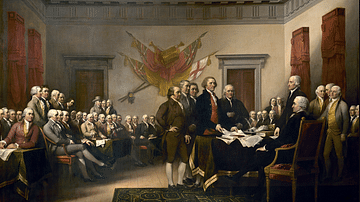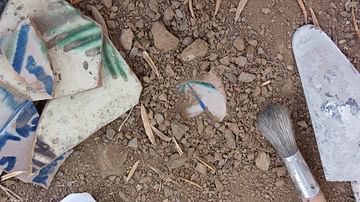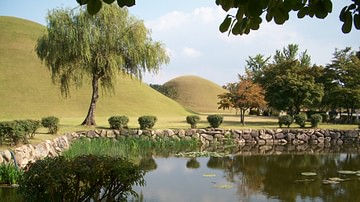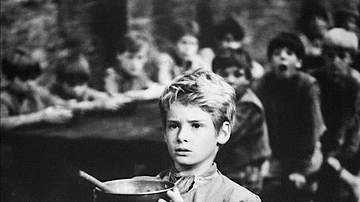Search
Remove Ads
Advertisement
Summary 
Loading AI-generated summary based on World History Encyclopedia articles ...
Search Results

Article
Index of Prohibited Books
The Index of Prohibited Books (Index Librorum Prohibitorum) was a list of written works condemned as heretical or injurious to the Christian faith by the Catholic Church at the Council of Trent in 1563. It remained in effect until 1966 when...

Definition
Social Contract
The social contract is an idea in philosophy that at some real or hypothetical point in the past, humans left the state of nature to join together and form societies by mutually agreeing which rights they would enjoy and how they would be...

Definition
Archaeology
Archaeology is a wide subject and definitions can vary, but broadly, it is the study of the culture and history of past peoples and their societies by uncovering and studying their material remains, i.e. tools, ruins, and pottery. Archaeology...

Article
12 Best Historical Fiction Books to Read
The AHE team live and breathe history, but we all have our favourite historical periods and authors. We thought it would be fun for each of us to nominate one or two books that we would recommend for the general reader as well as high school...

Interview
Interview: Korea-Japan Relations Through the Prism of Archaeology
Ancient East Asia was dominated by the three states known today as China, Japan, and Korea. The complex chain of successive kingdoms created a rich web of events that archaeologists have sometimes found difficult to disentangle; a situation...

Definition
Social War
The Social War (also called the Marsi War or the War of the Allies) of 91-87 BCE was the result of decades of contention between Rome and its Italian allies. Roman warfare relied heavily on the Italian allies (socii), but the Roman Republic...

Article
Gods and Heroes Archaeology Kit Review
If you are reading this, you probably love history and archaeology. And if you have children, then you have probably struggled at times to excite them about ancient ruins and archaeology. Here is an idea: let them be an archaeologist and...

Video
An Introduction to Archaeology: What is Archaeology and Why is it Important?
What is archaeology? In the broadest definition possible, archaeology is the study of human history through the material culture left behind. The desire among human beings for knowledge of what came before has always been there. Just look...

Article
Hercules and Alcestis: Personal Excellence & Social Duty
For the ancient Greeks, the quality of arete (personal excellence) and the concept of eusebia (social duty) were most important. Aristotle discusses both of these at length in his Nichomachean Ethics and relates arete to eudaimonia - translated...

Article
Social Change in the British Industrial Revolution
The British Industrial Revolution (1760-1840) witnessed a great number of technical innovations, such as steam-powered machines, which resulted in new working practices, which in turn brought many social changes. More women and children worked...